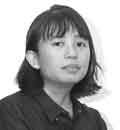Weaving is part of the Filipino culture and identity, and rather than just relying on new trends in fashion and in materials, it is important to have role models — whether in people or companies — that push for this industry to keep on going.
To continue the promotion and the education about the tradition of weaving, the Likhang Habi fair will carry on pushing for their advocacies with their first online edition.
Already have an active account? Log in here.
Continue reading with one of these options:
Continue reading with one of these options:
Premium + Digital Edition
Ad-free access
P 80 per month
(billed annually at P 960)
- Unlimited ad-free access to website articles
- Limited offer: Subscribe today and get digital edition access for free (accessible with up to 3 devices)
TRY FREE FOR 14 DAYS
See details
See details
If you have an active account, log in
here
.


